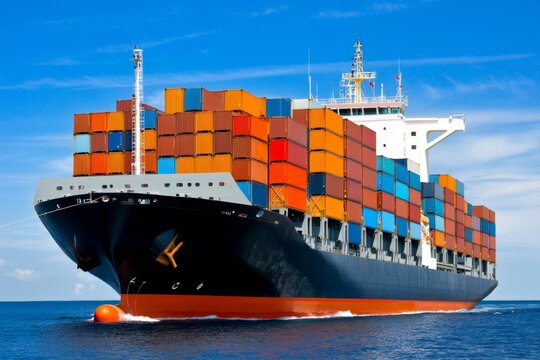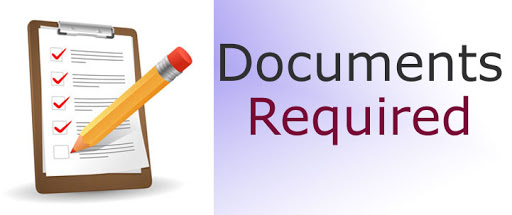- By TOP CHINA FREIGHT
- September 22, 2025
- Sea Freight, Shipping
Table of Contents
Shipping goods across the Pacific is vital for global trade. However, many businesses struggle to understand the true sea freight cost from China to USA, with variables such as container type, port charges, and customs duties. This guide breaks down costs, timelines, and strategies to optimize shipping, helping you make confident logistics decisions.

What affects sea freight cost from China to USA?
Several factors impact shipping rates. The most common include container size, shipping routes, fuel prices, and seasonal demand. For example, peak seasons around Chinese New Year or the holiday rush can significantly raise freight charges. Additionally, surcharges such as Bunker Adjustment Factor (BAF) or General Rate Increases (GRI) may apply.
A clear understanding of these elements helps importers budget more accurately and avoid surprise expenses.
How much does a container cost from China to USA?

Sea freight is usually priced by container. Full Container Load (FCL) and Less than Container Load (LCL) are the two main options.
Note: Prices fluctuate depending on port, carrier, and season.
What are the transit times for sea freight from China to USA?
Transit time depends on the departure and destination ports. West Coast ports such as Los Angeles are faster, while East Coast deliveries require longer sailing routes, often via the Panama Canal.
| Route | Average Transit Time | Notes |
|---|---|---|
| Shanghai – Los Angeles | 15–20 days | Fastest sea route |
| Shenzhen – New York | 28–35 days | Via Panama Canal |
| Ningbo – Houston | 25–30 days | Gulf Coast route |
These times exclude customs clearance and inland trucking, which may add extra days.
Sea freight vs. air freight: which is better?

While this guide focuses on sea freight, many businesses also consider air freight for urgent cargo.
| Factor | Sea Freight | Air Freight |
|---|---|---|
| Cost | Low | High |
| Speed | 15–35 days | 3–7 days |
| Capacity | Large volumes | Limited |
| Environmental Impact | Lower per unit | Higher |
Sea freight is more cost-effective for heavy or bulky cargo, whereas air freight is best for time-sensitive shipments.
What customs documents are required?

Shipping internationally requires compliance with customs regulations. Missing documents can cause delays or penalties.
Checklist of essential documents:
| Document | Purpose |
|---|---|
| Bill of Lading | Contract between shipper and carrier |
| Commercial Invoice | Declares product value |
| Packing List | Details cargo contents |
| Importer Security Filing (ISF) | Required before arrival in USA |
| Certificate of Origin | States manufacturing country |
| Customs Bond | Ensures duty/tax payment |
How can you reduce sea freight cost from China to USA?
Reserve space in advance to avoid peak-season surcharges.
A full container is usually more cost-efficient per unit than LCL.
Combining smaller orders into one container reduces per-unit cost.
Experienced freight forwarders can secure better rates.
Maximize container space to reduce wasted volume.
Case study: Reducing costs through smart planning

A mid-sized furniture importer in California regularly shipped 25 CBM from Ningbo to Los Angeles. Initially, they used LCL, paying around $3,500 per shipment. After consulting a freight forwarder, they shifted to 20ft FCL, even when not fully loaded. This lowered their cost to $2,800 per shipment while reducing handling risks.
This case highlights how analyzing shipment volume and container type can cut costs significantly.
What hidden charges should shippers expect?
Aside from base freight rates, importers must prepare for additional fees:
Terminal Handling Charges (THC):
Costs at loading/unloading ports.
Customs Duties & Taxes:
Based on product classification.
Delivery Order Fee:
Charged by shipping lines.
Demurrage/Detention:
Fees for delays in returning containers.
Documentation Fees:
Charges for paperwork processing.
Factoring these hidden charges into budgets helps avoid financial surprises.
Should you use a freight forwarder for China–USA shipping?
A professional freight forwarder simplifies the shipping process by managing booking, documentation, customs clearance, and last-mile delivery. Moreover, forwarders often have established contracts with carriers, securing lower rates and guaranteed space during peak seasons.
For small businesses or first-time importers, partnering with a reliable forwarder is especially valuable.
Conclusion
The sea freight cost from China to USA depends on multiple variables, including container type, port choice, customs fees, and seasonal trends. By understanding these factors, importers can make informed decisions, reduce expenses, and avoid unnecessary delays. Working with experienced freight partners, planning shipments early, and optimizing container usage are key strategies for success.
Need a Shipping Quote?
If you want expert guidance and peace of mind, our team is ready to assist.
TJ China Freight offers tailored solutions to help businesses of all sizes ship more reliably from China.

FAQ
Q1:What is the cheapest way to ship from China to USA?
Sea freight is the most affordable method, especially for bulky or heavy cargo. FCL is cheaper per unit than LCL if volume is sufficient.
Q2:How much is LCL shipping from China to USA?
On average, LCL rates range from $100 to $160 per CBM, but costs vary by port, season, and handling charges.
Q3:Do I need a customs broker for sea freight?
Yes, a customs broker is highly recommended. They ensure correct filing, duty payment, and compliance with US Customs regulations.
Q4:How early should I book sea freight from China?
It is best to book 3–4 weeks in advance, especially before peak shipping seasons such as September–December.
Q5:Can I track my sea shipment from China to USA?
Yes, most carriers and freight forwarders provide real-time tracking using container numbers or Bills of Lading.
